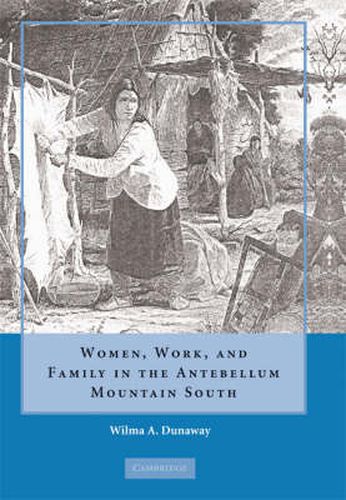Readings Newsletter
Become a Readings Member to make your shopping experience even easier.
Sign in or sign up for free!
You’re not far away from qualifying for FREE standard shipping within Australia
You’ve qualified for FREE standard shipping within Australia
The cart is loading…






Wilma Dunaway breaks new ground to examine the race, class, and ethnic differences among antebellum Southern Appalachian women. Most women defied separate spheres of gender conventions to undertake agricultural and non-agricultural labors that were essential to family survival or community well-being. Unlike elite and middle-class females, Cherokee, black, and poor white women engaged in stigmatized labors and worked alongside males in cross-racial settings. To support their work portfolios, non-white and most poor white women constructed non-patriarchal families that challenged cultural ideals of motherhood. Churches and courts inequitably regulated the sexual behaviors of these women and treated their households as aberrations that were not entitled to the legal privilege of family sanctity. Legal and religious officials sanctioned family break-ups and the removal, indenturement, or enslavement of their children. Still, many women resisted patriarchal conventions through their work lives, family roles, and group activism.
$9.00 standard shipping within Australia
FREE standard shipping within Australia for orders over $100.00
Express & International shipping calculated at checkout
Wilma Dunaway breaks new ground to examine the race, class, and ethnic differences among antebellum Southern Appalachian women. Most women defied separate spheres of gender conventions to undertake agricultural and non-agricultural labors that were essential to family survival or community well-being. Unlike elite and middle-class females, Cherokee, black, and poor white women engaged in stigmatized labors and worked alongside males in cross-racial settings. To support their work portfolios, non-white and most poor white women constructed non-patriarchal families that challenged cultural ideals of motherhood. Churches and courts inequitably regulated the sexual behaviors of these women and treated their households as aberrations that were not entitled to the legal privilege of family sanctity. Legal and religious officials sanctioned family break-ups and the removal, indenturement, or enslavement of their children. Still, many women resisted patriarchal conventions through their work lives, family roles, and group activism.